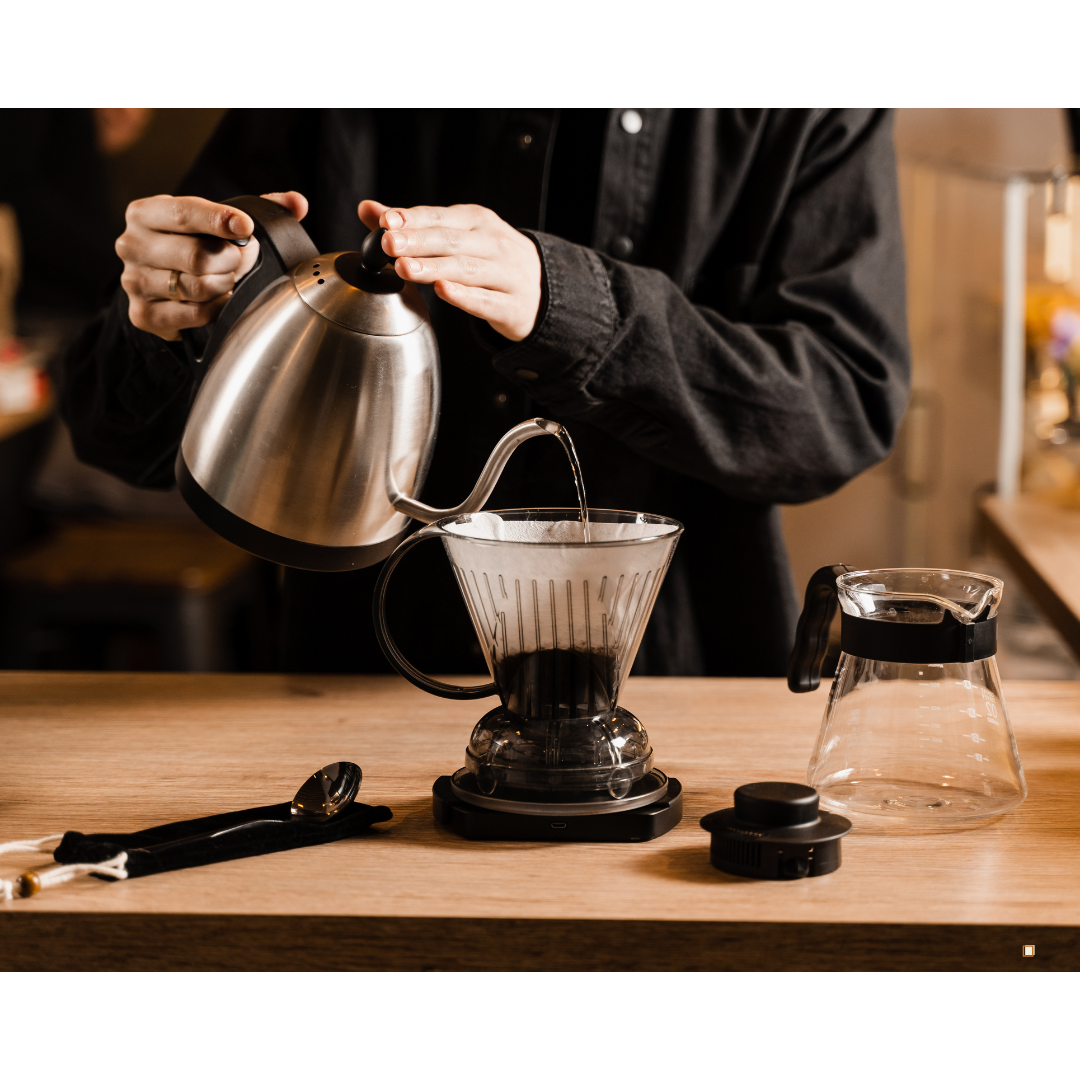
The Impact of Water Quality on Decaf Ground Coffee Flavor
When it comes to brewing the perfect cup of decaf ground coffee, water quality is an essential but often overlooked factor. The right water can elevate the flavor of your coffee, highlighting its delicate nuances and ensuring a balanced, satisfying brew. Conversely, poor water quality can detract from the coffee’s taste, leaving you with a flat or bitter cup. For home brew enthusiasts who cherish the smooth and nuanced flavors of decaf, understanding how water quality affects your brew can make all the difference.
Why Water Quality Matters in Coffee Brewing
Coffee is about 98% water, which means the quality of your water directly impacts the taste of your brew. Minerals, pH levels, and impurities in the water interact with the coffee grounds during extraction, affecting how flavors are released and perceived. For decaf coffee, which tends to have a milder profile than regular coffee, water quality is even more critical. Subtle imbalances in water composition can easily overshadow the delicate flavors in decaf, leaving you with a less enjoyable cup.
Key Factors That Influence Water Quality
-
Mineral Content (Hardness)
Hard water contains high levels of minerals like calcium and magnesium, which can over-extract coffee grounds, resulting in a bitter or harsh flavor. On the other hand, water that’s too soft lacks the minerals needed to properly extract the coffee’s flavors, leading to a weak or flat-tasting cup. Striking the right balance is essential for a well-rounded brew. -
pH Levels
The pH level of your water affects its acidity. Ideally, water used for coffee brewing should have a neutral pH of around 7, though slightly acidic water (6.5 to 7) can enhance the brightness and clarity of flavors. Water that is too acidic or too alkaline can distort the flavor balance of decaf coffee. -
Chlorine and Impurities
Tap water often contains chlorine, which can impart an unpleasant chemical taste to your coffee. Other impurities, such as sediments or organic compounds, can also negatively affect the flavor. Using filtered or purified water helps remove these contaminants, ensuring a cleaner and more enjoyable brew. -
TDS (Total Dissolved Solids)
Total Dissolved Solids measure the concentration of dissolved minerals and compounds in water. A TDS level between 75 and 150 ppm (parts per million) is generally considered ideal for coffee brewing. This range provides enough minerals to support flavor extraction without overpowering the coffee’s natural profile.
How to Improve Water Quality for Brewing
-
Use a Water Filter
Installing a water filter is one of the simplest and most effective ways to improve your brewing water. Filters remove chlorine, sediments, and other impurities, leaving you with clean water that won’t interfere with your coffee’s flavor. Pitcher filters, faucet-mounted filters, or under-sink systems are all great options. -
Opt for Bottled or Purified Water
If your tap water is too hard or has a strong chlorine taste, consider using bottled spring water or purified water. Look for brands that specify mineral content or pH levels on their labels, as this can help you choose water that aligns with optimal brewing standards. -
Invest in a Home Water Testing Kit
Testing your water at home can provide valuable insights into its composition, including pH, hardness, and TDS levels. Armed with this information, you can adjust your brewing water accordingly, either by filtering or blending with bottled water to achieve the ideal balance. -
Experiment with Different Waters
For curious coffee enthusiasts, experimenting with different types of water can be a fun way to explore how water quality impacts flavor. Brew the same decaf ground coffee with various waters—tap, filtered, and bottled—and note the differences in taste, aroma, and mouthfeel. This exercise can help you identify the best water option for your preferred coffee profile.
Water Quality Tips for Specific Brewing Methods
-
Pour-Over
The pour-over method is particularly sensitive to water quality due to its slow and controlled extraction process. Using filtered or spring water with balanced mineral content ensures that the coffee grounds are evenly extracted, highlighting the nuanced flavors of decaf coffee. -
French Press
With its full-immersion brewing process, the French press allows for prolonged contact between water and coffee grounds. Clean, neutral water is crucial to prevent over-extraction and bitterness, especially in decaf coffee, which has a more delicate flavor profile. -
Drip Coffee Makers
Many drip coffee makers heat water to an optimal temperature for brewing, but the water quality still matters. Using filtered water can prevent mineral buildup in the machine and ensure a clean, consistent brew. -
Cold Brew
Cold brewing requires a long steeping time, making water quality even more important. Impurities and off-flavors in the water can become amplified during the 12-24 hour steeping process, so always use purified or filtered water for cold brew.
The Impact of Water Temperature
Water temperature also plays a significant role in flavor extraction. The ideal brewing temperature is between 195°F and 205°F, which allows for optimal extraction of the coffee’s flavor compounds. Using water that’s too hot can over-extract and burn the grounds, while cooler water may under-extract, leading to a sour or weak flavor. When paired with the right water quality, maintaining the proper temperature ensures a balanced and flavorful cup of decaf coffee.
Experience the Difference with Frontier Coffee Roasters
At Frontier Coffee Roasters, we know that every element of brewing plays a role in creating the perfect cup of decaf ground coffee, and water quality is no exception. That’s why we source high-quality beans and use careful roasting techniques to ensure our coffee is full of flavor, even before it meets your preferred water. Whether you’re experimenting with different brewing methods or optimizing your water quality, our decaf options are crafted to deliver a smooth, satisfying experience every time. Discover the difference in taste and quality with Frontier Coffee Roasters.

